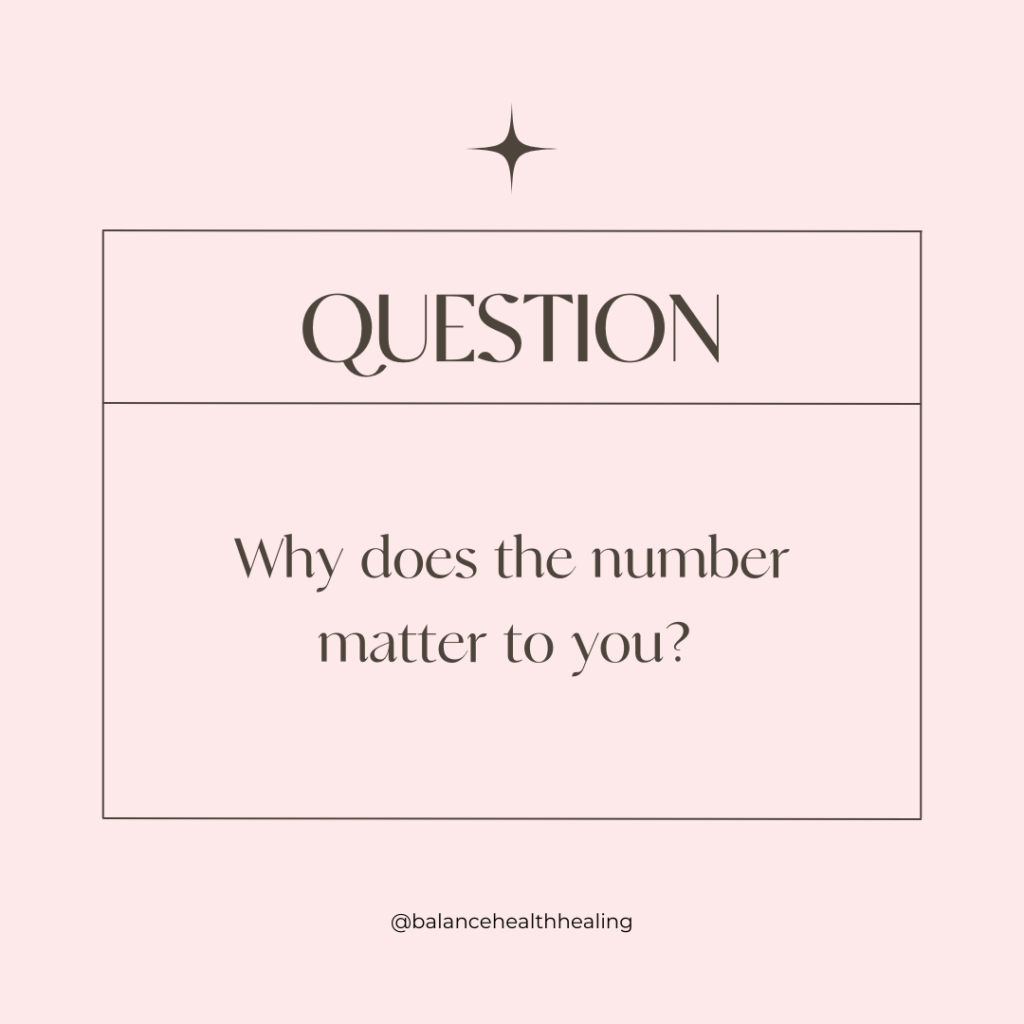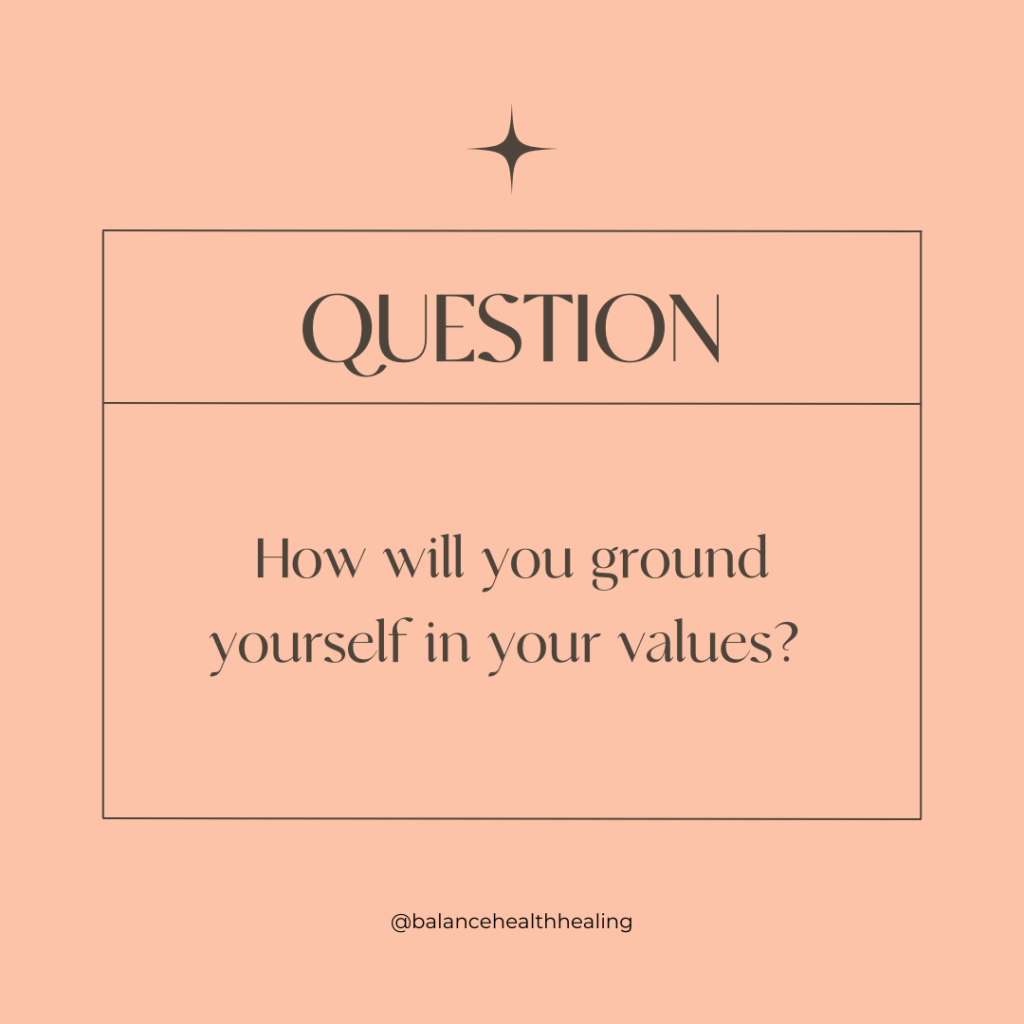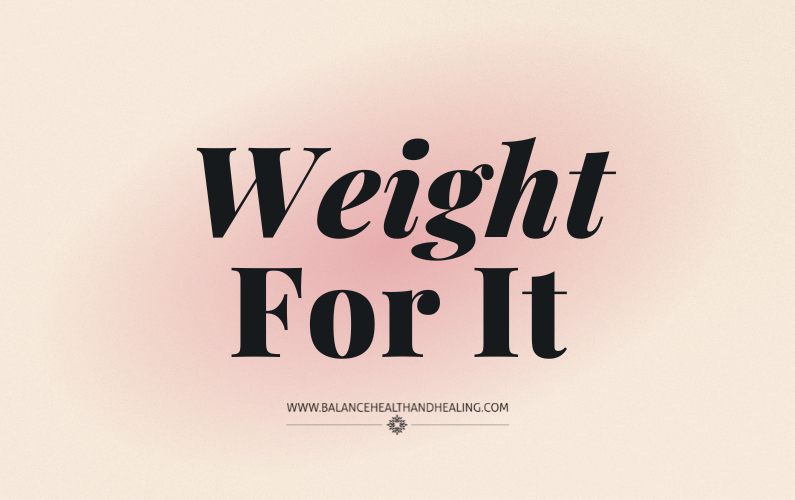Last week a client who has been in recovery for several years wanted to discuss her sudden desire to weigh herself. Early in her recovery journey, she “threw away the scale” and got in tune with her body from the inside out. She learned to value her body based on what it offers her and how she feels in it instead of the number on the scale. As a result, it has been several years since she has known her weight, and she suddenly found herself curious about where her body was in this regard. She wanted to work through if weighing herself was a good idea and something that would potentially facilitate her growth; or if it was a bad idea and inviting an old vulnerability. 
Whenever I explore a behavior, it feels critical to examine the “why” behind the “what.” Here are some questions to consider regarding the number on the scale.
Why does the number matter to you?
What do you hope will happen by learning this number?
What are your intentions with this information?
What are you worried about?
What do you believe or understand about what this number says about your body, health, worth, etc?
How will you navigate unexpected reactions to this information?
How will you ground yourself in your values?
There are three possible outcomes regarding weight. You will either learn that your body 1. Didn’t change, 2. Lost weight, or 3. Gained weight. We can think through potential pros/cons with these outcomes.
If your body is at a stable point or didn’t change:
Pro: You may experience this data point as a source of reassurance that your body is trustworthy. You see that your body does stabilize at a certain “point” when it is fully nourished and taken care of. This may lead to a sense of predictability and comfort in your body.
Con: Experiencing your body as trustworthy, based on weight, is a false source of trust. Bodies are trustworthy, and they can be and especially may be, trustworthy with weight fluctuations. Your body’s main job is to take care of you. She knows best how to do this. And how she takes care of you includes a host of factors that are outside of your own awareness. Your body may find it necessary to fluctuate in its weight in service of that care. 
If your body weighs less than you thought:
Pro: If you thought you weighed more, or felt “larger,” than the number the scale revealed, learning the number is smaller than you thought may increase awareness of how distorted you experience your body subjectively. This may be a reality check for you.
Con: You find reassurance in being “smaller” but this continues to place value on size as a metric of worth and well-being for you. Or at least a source of comfort and reassurance. Either way, it externalizes what is an inside job.
If your body weighs more than you thought:
Pro: You may see the number on the scale and find that it is higher than you anticipated and are able to reflect on how you feel in your body doesn’t relate to that number on the scale. This may help you understand that the number doesn’t reflect an embodied, lived reality. You may understand that feeling good in your body is more important than how much gravity pulls on your body (weight).
Con: This may be incredibly triggering and destabilizing. You may believe that your “worst fear” has come true and understand that nourishing your body leads to unexpected and feared weight gain. You will find yourself comparing this number to either a smaller number you’ve been at before or an idealized number. The number on the scale will increase in its power and influence over you, leading to increased mental energy, anxiety, distress, and potentially disordered eating habits.
We could flesh out this pro/con list even more, and I think you get the idea.
Each individual journey in recovery is unique. And what one person does in recovery may look different from someone else’s journey. This is just one example of how recovery may shift over time and look different. While I maintain that part of my own recovery is not to know my own weight, I also acknowledge that there may be value in someone else knowing their weight as part of their journey. What matters is the “why” behind the “what” and how that continues to align with your values and growth.

